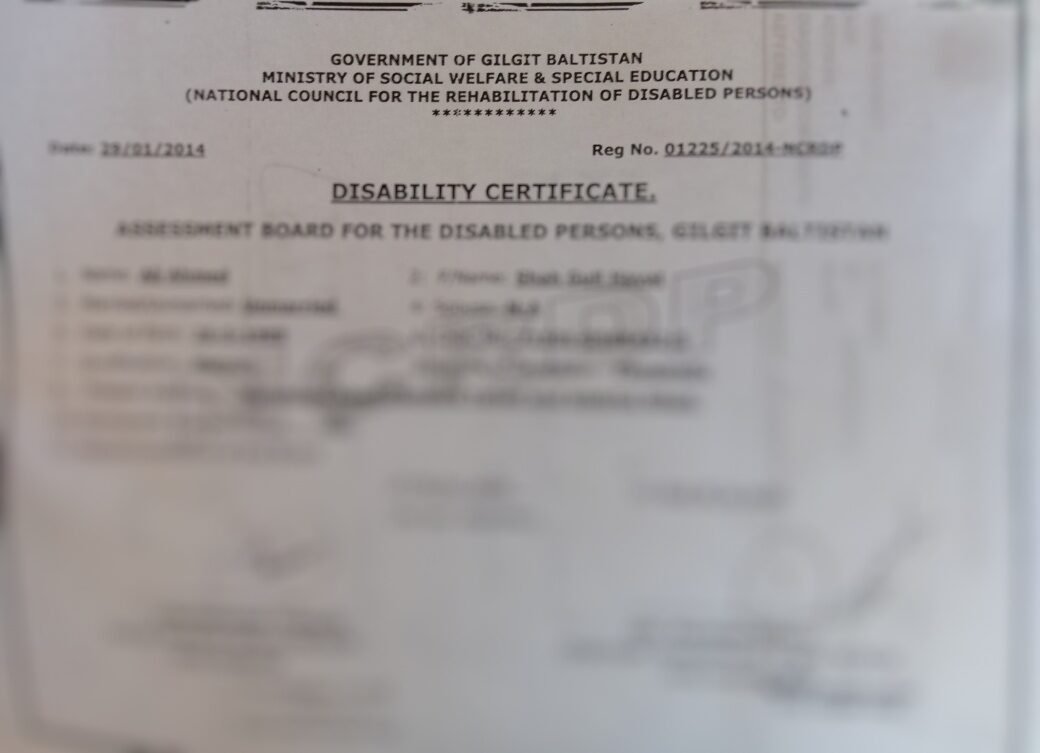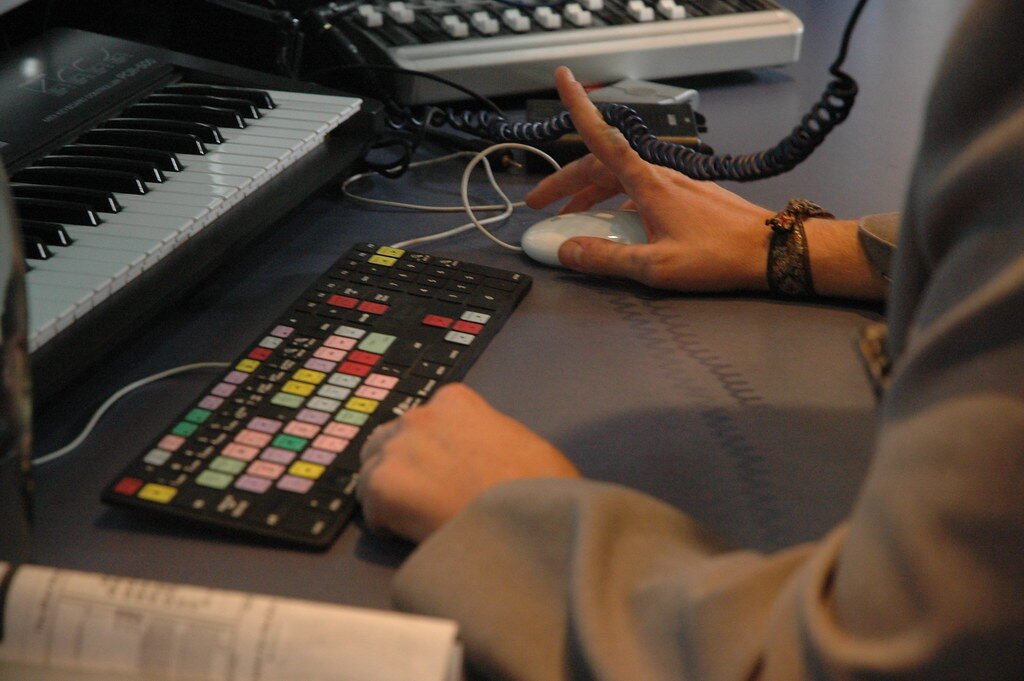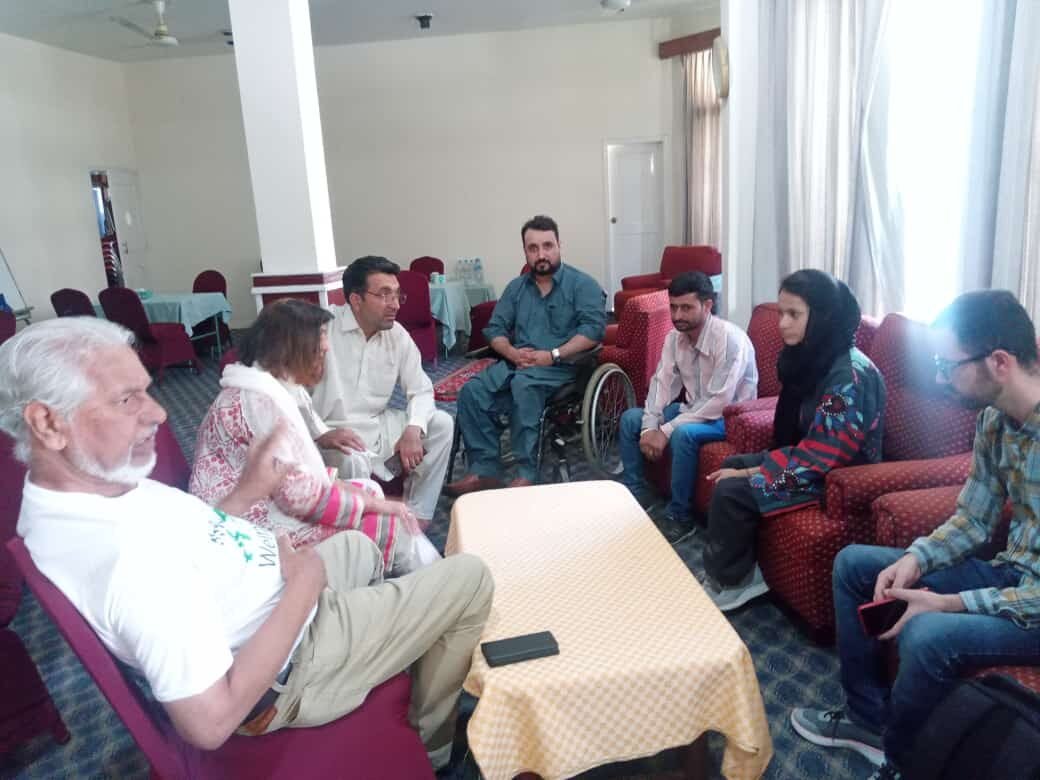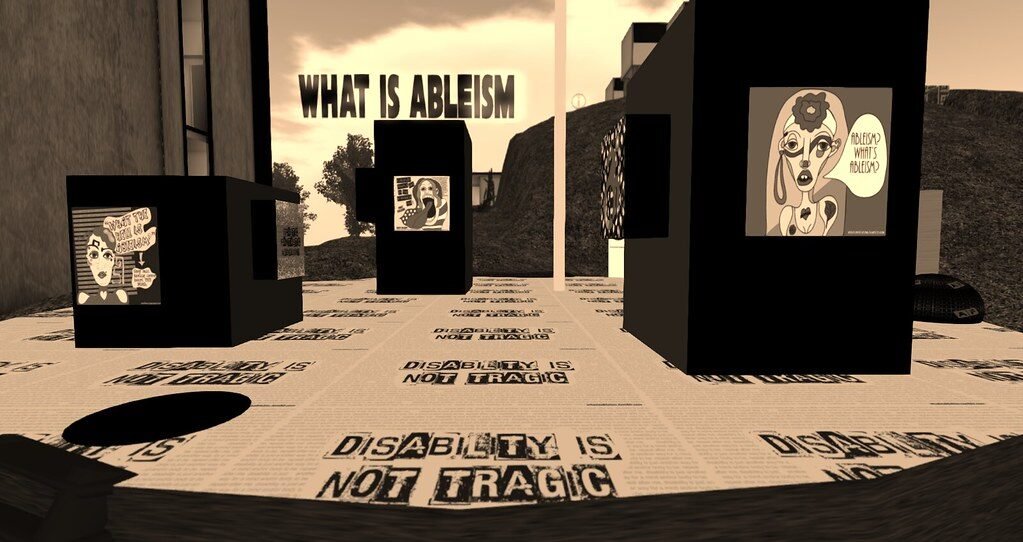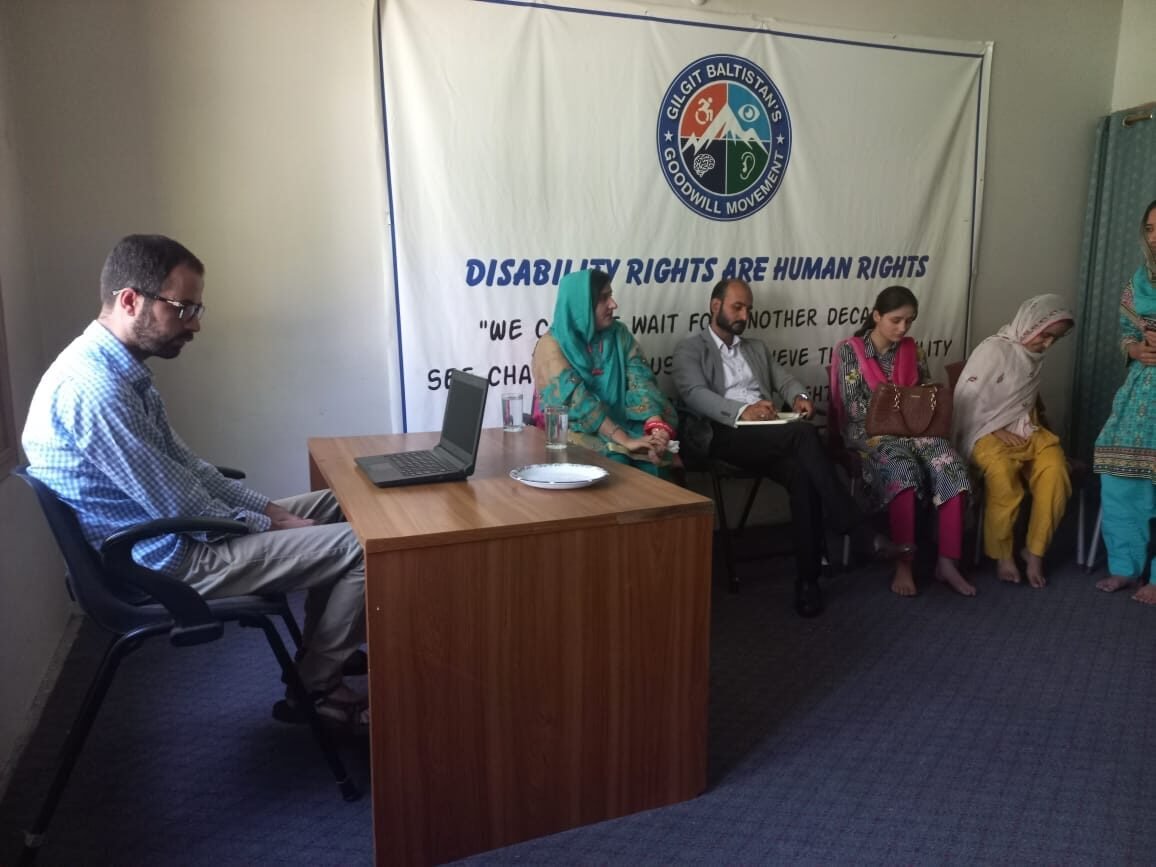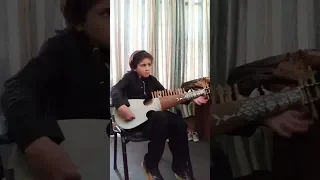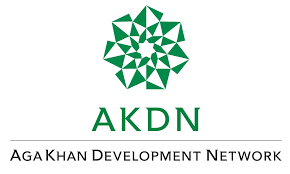How to Obtain disability certificate in Gilgit-Baltistan
A disability certificate is an official document issued by the Social Welfare Department to persons with disabilities, certifying their condition and the level of disability they have. These certificates are crucial for persons with disabilities (PWDS)
Technology and Disability. Ableism versus Positivism
What is Science? How can it be used as a tool?
If one were to say what Science is, one would define it as the study of objectivity. If one wanted an extended definition, one could add to be objective is to be impartial and report on their findings. Whether one is aligned with the natural sciences or the social sciences, Auguste Comte’s principle of positivism, which is if one can see, one can testify, predict & hypothesize. However, Science has been used by the worst of the worst, like those scientists serving the Nazi Regime of the 1940s and eugenicists like Hitler.
Nevertheless, why is there a lack of awareness about how people with disablities can be helpful in society: it is because eugenicists over the years have said that disability is a sickness. Terms like differently abled and disabled, though, might not be used offensively, but it still shows that society, through Science, justifies Ableism.
The Digital Revolution should have been a Disabled Revolution, but it can still happen now in Gilgit Baltistan for PWDs.
In areas like Gilgit Baltistan, where village/country life is possible, the digital revolution should have included Persons with Disablities. Rafi (2021) reports for the IMF, ‘ Their inclusion and empowerment is essential, as it benefits not only the person with disabilities but also family members, who are more likely to leave their jobs to care for relatives in this situation. ‘ Moreover in Gilgit Baltistan, if we assume that 50% of the population are villagers then if there could be a skills development initiative succeeding in India https://www.youtube.com/watch?v=y3jYVe1RGaU, why can not disabled people follow in this project in Gilgit Baltistan, https://gbgoodwillmovement.com.
Reinvesting in Gilgit Baltistan with an educational purpose
While individuals and businessmen have invested in the area of Gilgit Baltistan in areas of
- Hotels
- Lands
- Other projects
The digital market still requires people from the region, and according to Rafi’s IMF report, Excluding people with disabilities from the workforce can lead to a loss in a country’s GDP of up to 7% https://www.youtube.com/watch?v=jrqlpY6nl-k&t=28s.
We want investors to reinvest in a more inclusive Gilgit Baltistan through our organization.
Nepotism and Favouritism in Gilgit Baltistan. Persons with Disablities.
In the Podcast by Glasgow Disablity Alliance, I realized that Persons with Disablities must express their voice more clearly and bluntly. While I do not believe conflict is the right course of action, one must promptly reform their behavior if they are doing something wrong. This is the philosophy of Life. One’s ethics and conduct determine their social capital, whether they are unable to socialize, communicate, and network within their society, etc.
In Gilgit Baltistan, someone comes into or goes into power regardless of their intellectual level and freedom of thought. Dr. Saranjam Baig highlights that in Gilgit Baltistan, we (the people) are often scared of talking about such issues as ‘ they’ might look upon this as anti-state or anti-government. While we are in no position to change past circumstances, we can do it in the future https://www.facebook.com/ibexmedianetwork/videos/539903361567231
Nepotism
While I am no one to judge or measure nepotism, the thing is that it benefits a few, not many. We have to change our ideology, precisely regarding persons with disablities. I am not accusing anyone, certainly not a disabled person, but is it not apparent that the 18 crore and 66 lakhs suited someone’s agenda rather than disabled people themselves https://gbgoodwillmovement.com/the-recent-passage-of-the-budget-by-the-gilgit-baltistans-government/. This has to stop. Pakistan is a developing country, but the awareness of persons with disablities needs more investment.
Favoritism
Once you have a nepotistic state of mind, favoritism is your right hand. I should not be saying this, but this also happens in Gilgit Baltistan. This is unethical as some organizations working for Persons with disablities have some other expertise than others, as some might work on
- Spinal Cord injuries
- Cerebral Palsy
- Visual Impairments
- Intellectual disablities such as autism
Long term consequences
Due to nepotism and favoritism, disabled people often
- Lose out on vital funding.
- Mistrust officials
- Create an environment where there is misinformation/disinformation
- Lose out on important gains being made in the struggle to achieve fully disabled rights.
Review of Care About Us Podcast.
I want to thank Jamila Shaikh of The Glasgow Disablity Alliance for giving me the honor of writing a review on the Glasgow Disability Alliance Podcast Care About Us, which can be found on Spotify, https://podcasters.spotify.com/pod/show/care-about-us.
About the organization.
The Glasgow Disablity Alliance, which I happen to be a member of, is the largest organization of disabled members in Europe and a leading, celebrated example of a grassroots community of identity driving improvements to disabled people’s lives in parallel with more comprehensive changes to policies, services, and society https://gda.scot/. It has many forums within the organization, including The BAME Network, which will be discussed later on, Drivers for Change, a Social Policy Reformist Group of Disabled Individuals, and many others you could browse in your own time.
Clash of Ideologies
Though the heading may be misleading, in this podcast, we heard the stories of disabled people who are predominantly white. While this is not meant to suggest a racial difference, it is intended to indicate how our South Asian mentality towards Persons with Disablities needs to be more apparent and voiced. For instance, the members of this podcast are Scottish and know how to communicate about such a situation, just like Rosie.
I have mentioned on my social media feed that the Scottish Disabled Youth expressed themself freely in numerous events held by the GDA https://www.facebook.com/ardi.baig/posts/pfbid02yW9TQFeCgivvFUk8r53UhHvexGUWrYufxiP1RK4cWkX1dXbeniSfxGdyG8Peitiql. Why is it the case that we do not hear of the Stories of South Asian in these communities forums? Is it because we are excluded from such meetings? NO! Rather the opposite.
Fighting against the status quo of mentality – ذہنیت
It is because we do not consider this to be an issue. Where one disabled person calls for the reform of a policy, one is suppressed, said Jamila Shaikh, GDA Official. Unlike in Gilgit Baltistan, which to an extent has been influenced by European culture through the likes of German writers publishing books on the subject, and other influences, there are sociopolitical factors that need to be discussed when discussing the issues of South Asian Persons with Disablities in the UK, including :
- Geographical boundaries
- Social settings
- Selected Morals, Values, and Belief systems
- Lack of reading culture.
I find the 4th one the most critical factor in determining this due to the lack of information we receive. For example, I just recently found out about the BAME society.
Jamila Shaikh’s vision for the GDA BAME society.
I recently met Jamila at the start of 2023, and I think we both understand the challenges for BAME society. To be clear though I am a member, I volunteer at the BAME society and help Jamila in certain events. Jamila’s work spans nearly two decades, first at the Royal National Insitute of Blind People and now at the GDA. Though her work covers dealing with
- Refugees.
- Women, particularly in the Punjab regions (Indian Punjab and Pakistani Punjab)
- Asylum seekers,
no one has supported this be it from any South Asian community.
GBGM commitment to the GDA
Though our organization is young in nature, our platform https://gbgoodwillmovement.com can be used for the promotion of the Glasgow Disablity Alliance and find commonalities with the GDA’s BAME Group in Glasgow.
If anyone wants to email Jamila, please contact her at : jamila@gdaonline.co.uk
Copyright of Image: GDA, 2023
Meeting between Goodwill movement and Amna Begum Welfare Trust
President Farhan and his team of the Goodwill Movement, recently presided over a crucial meeting with the responsible members of the Amna Begum Welfare Trust, focused on addressing the challenges faced by disabled individuals in Gilgit-Baltistan.
Ableism in action – Why does it happen?
As the Pakistani poet Habib Jalib said, ‘ I refuse to acknowledge, I refuse to accept.’ Not to misrepresent Jalib, but perhaps he didn’t realize that a positive side of Gen Zia ul Haque was, in effect, that he eliminated ableism to a certain extent. That is pretty much all one can say about what Gen Zia ul Haque did that was positive – but that can be debated, and we do not want to go down the political route. I hope this acts as a guide for some to identify ableism.
Refusing to accept that society has an ableist nature
I recently reflected upon some experiences that my friends, both in Gilgit and the UK, told me of how they were discriminated against in the societies that they live in. Ableism is alive and kicking, but like everything, one cannot fully prove that ableism happened in one’s community. Yes, sentiments can hurt, but they cant be provable in a court of law. So what are some of the signs that one can notice which can indicate ableism?
Signs of Ableism
- Being empathetic for no good reason
- Rejecting one’s feelings (emotionally), be it in whichever way possible.
- Inconsiderate of Disabled people
Power versus disabled people.
Even the most left-wing character Karl Marx describes an ideal man to be ‘
the ‘ ideal man ‘[1] is someone ‘ who can coordinate certain cognitive and physiological abilities’ . So can we say that Lenin or Stalin were Marx’s ideal men or Putin be over the top. I think not and one of the point that I was alluding to in another article is society needs to get out of this zone where disabled people are all poor and must be all good Morality and Governance – How PWDS are respected – Why is this? Fear?. NO!
We do not need to keep giving disabled people just charity but also give them the skills to achieve something.
[1] Steffan Bengtsson, Out of the frame: disability and the body in the writings of Karl
Marx, Scandinavian Journal Of Disability Research, 2017. Page 154.
Lessons from AKDN – How can we learn lessons to further disablity development?
Belated Salgirah Mubarak to all the Ismaili community members around the world! Many will celebrate the Aga Khan’s work, which Ismailies call their Hazir Imam. While GB Goodwill Movement does an interfaith community-based job within the Gilgit Baltistan region: if one were to talk of successful projects in GB, one would need to mention the Aga Khan’s Work within the area, from schools to local hospitals within GB. AKDN’s works play a significant part in the lives of the citizens of Gilgit Baltistan, specifically Hunzais. Nevertheless, as organizations, what are the lessons that can be taken from AKDN?
Embracing Diversity and Inclusiveness
One of His Highness’ quotes is, ‘ We can not make the world safe for democracy until we also make the world safe for diversity. ‘ At Goodwill, we are just advocating for the rights of persons with disabilities. Period. We do not expect to have special rights: but the inalienable rights are given to each man and woman (quoted from the US Constitution, 1789). PWDs should be able to work and contribute to society regardless of gender, religion, or sexuality.
The thing is, though: there is a moral Panic
Moral Panic – Not needed
A moral panic is a situation where the media hypes a scenario, and citizens assume that the media shows the truth, and that is it. We know in the case of Pakistan, specifically on the issues, Persons with Disablities are shown to be the lowest of the lowest class, where this is no intellect and PWDs are poor. In the Gilgit Baltistan context, many individuals, including those featured here on the Stories of the Resilient https://gbgoodwillmovement.com/blog/, have achieved masters and degrees but are not employed due to a lack of awareness in society, and due to this so-called Moral Panic.
Another example would be that of Gilgit Baltistan Disabled Scholar Fazal Amin Beg, who, despite his disability, has the intellect but could not go on to further education https://fazalamin.com/biography/ due to societal pressures around PWDs in Pakistanhttps://pamirtimes.net/2019/01/02/renowned-researcher-fazal-amin-baig-launches-website-to-make-his-work-available-online/.
Calling for support for Persons with Disablities
Like AKDN, local disabled organizations need the support of people. In another quote by His Highness, he said, ‘We must explore every opportunity to have different faiths come together in addressing the problems of our respective societies.’ Societies must come together to solve issues for Persons with Disablities. No matter whether you live in Karachi, London, or Sydney, the individual has a responsibility towards all communities and societies.
Join us in supporting our mission.
Stories of the resilient – Ghulam Muhammad Baig
If we can not compete within the circle, why bother competing? Why should one get an opportunity if one can not strive to work hard? Something like that is similar to my story.
My name is Ghulam Muhammad Baig. Currently, I live in Glasgow, Scotland, with my family. Initially, I am from Hunza, Gilgit Baltistan. I am going into my final year at the University of Strathclyde Glasgow, hopefully graduating with a BA Honours Major in Politics and a Minor in History. I started my education in Pakistan and then moved with my family to Glasgow, Scotland, UK, at age seven in 2006.
Living in a Pakistani family setting with a disability is different than other cultures. Though even in Pakistan, we were living in a privileged household, with my father being an army doctor in the Pakistan armed forces: the lack of awareness within South Asian Households and especially within the military, as it deals with minor and significant injuries was quite surprising. Yes, you do have to realize that it is a part of society, but the fact that many men were injured in wars, you would expect some greater awareness within the military establishment. However, moving on, I went to Sesame school in Abbottabad, and then later on, when we moved to Rawalpindi, I attended the Umeed E Noor School in Islamabad, which the Hashoo Foundation, now a close ally of this organization (https://gbgoodwillmovement.com). Though not fully aware but by then, I had started being aware that I have got some disabilities in the form of difficulties in speaking, eating, walking, handwriting, and doing things with my hands.
Then when I came to the UK, I started to attend a special needs school called Kelbourne Primary, where I studied there for five years. Those five years were really important in improving my language and communication skills. The support I got there in the form of education, speech therapy, hydrotherapy, physiotherapy, and occupational therapy transformed some of my disabilities into abilities. After completing primary school, I went to a special needs secondary school named Ashcraig Secondary School where I spent six years. The years at Ashcraig were more challenging, mentally and physically. This school had students from different cultural backgrounds, and I had real difficulties coping with my peers. However, I learned from errors and mistakes and gained confidence by the sixth year, to the extent that I was able to speak on any issue in front of the whole school, and many of my teachers were happy with me. After acquiring the necessary qualifications set by the Scottish Qualifications Authority (SQA), I was able to be enrolled in the social sciences course at the City Of Glasgow College where I graduated in 2021. I am interested in the social sciences because I want to investigate how society functions, what are the different attitudes within society, and what are the different hurdles/barriers in society
How did Goodwill Movement Begin?
During the time of the Coronavirus Pandemic, when we were all locked at home and had nothing else to do apart from watching TV and using social media, it was the time I decided that I should help and campaign for the disabled community of Gilgit Baltistan in whatever capacity I can and this is where the idea of creating the Goodwill movement came from.
When I look at the experiences of disabled persons in Pakistan and compare it to the UK, here, society treats its disabled community equally. As a disabled student studying at the City of Glasgow College, I can say that the disability issue in Gilgit Baltistan has remained a long-term neglected issue.
Initially, I did primary research on the disability issue in Gilgit Baltistan by contacting two well-renowned disabled rights activists, Irshad Kazmi and Amjad Nadeem who provided me with an insight into the disabled community of Gilgit Baltistan.
According to them, the government of Gilgit Baltistan has attempted to address this issue by involving Nadeem and Kazmi in the decision-making process, but we collectively feel that the issues faced by the disabled community cannot be solved solely by the government. I even supported Nadeem’s work and projects by creating a local volunteer team and funding them for their projects via Facebook fundraisers.
Where does Goodwill Now stand
Though the idea of fundraisers is very effective, I and a few other activists https://gbgoodwillmovement.com/about-us/ established the Goodwill Movement so that at the same time as persons with disabilities are receiving aid in terms of food, water, medicines, and shelter, PWDs can receive free training and more importantly it is the first IT centre for Adult PWDs, so that Persons with Disablities could gain the opportunities just like the opportunities that I gained in the UK.
To read more on it, please visit https://gbgoodwillmovement.com and to keep supporting our projects please visit https://gbgoodwillmovement.com/donate-us/.
Donation policies can be found here : https://gbgoodwillmovement.com/which-actors-play-a-role-in-inclusive-policymaking/
Thank You!

